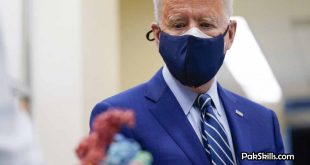Porno star Stormy Daniels is suing Donald Trump over a nondisclosure concurrence on their charged undertaking, adding to an extensive rundown of common cases the president is as of now confronting.
In a common claim documented as of late in Los Angeles County Superior Court, legal advisors for Stephanie Clifford (Daniels’ genuine name) contend that the nondisclosure assention she marked before the 2016 race isn’t substantial in light of the fact that Trump never marked it.

Trump is likewise confronting a claim from previous Apprentice challenger Summer Zervos for slander, and he’s been sued in excess of 100 times in government court, on issues going from his activities on movement to the Constitution’s Emoluments Clause.
Meanwhile, extraordinary advice Robert Mueller’s examination concerning Russian interfering has just stumbled up a few of Trump’s partners, driving some to ponder whether he would attempt to prosecute the president too in the event that he had solid confirmation of bad behavior.
These cases have brought up a direct issue with convoluted lawful repercussions: Can you sue the president? Does it make a difference if it’s state or government court? What’s more, would you be able to arraign the president?
Both the Daniels and Zervos suits bring up a genuine legitimate issue: would someone be able to bring a common suit against a sitting president in state court? Trump’s attorneys say no. “State court can’t practice any control over the president under any conditions,” Trump’s legal advisor Marc Kasowitz contended in New York state court toward the beginning of December. The movement to expel Zervos’ case, Kasowitz proceeded, is tied in with “ensuring the capacity of the president to do his unavoidably commanded activity.”
In court filings, Trump’s group has refered to the Supreme Court’s 1982 choice in Nixon v. Fitzgerald, which held that the president has “total invulnerability” from being held subject for harms in common claims for lead inside the “external edge” of his authority presidential obligations. “On account of the solitary significance of the President’s obligations,” the choice peruses, “preoccupation of his energies by worry with private claims would raise remarkable dangers to the successful working of government.”
This is a key component of Trump’s legal counselors’ contention around the Zervos case for why he can’t be sued in state court. Be that as it may, there are cutoff points to the holding in Nixon v. Fitzgerald: the case just connected to common suits in government court, not state court, and just to common suits identified with official activities as president, not individual direct.
It’s a later Supreme Court case, 1997’s Clinton v. Jones, that acquaints private acts with the interwoven of laws on presidents and common claims. This time, confronting a case in which previous Arkansas state representative Paula Jones blamed President Bill Clinton for lewd behavior, the Supreme Court said the Nixon v. Fitzgerald controlling on resistance from common harms did not have any significant bearing to “informal lead” by the president.
We have never proposed that the President, or some other authority, has an insusceptibility that reaches out past the extent of any move made in an official limit,” the Court held. “The case of inquiries that relate completely to the informal lead of the person who happens to be the President represents no noticeable danger of misallocation of either legal power or official power.”
This choice is useful for those in favor of Zervos and Daniels, deciding conclusively that presidents can be sued while in office for private direct.
“Clinton v. Jones clarifies that this Defendant isn’t qualified for qualified insusceptibility — or some other types of authority acts [of] invulnerability — on the grounds that this case included informal lead by Defendant before he accepted office,” Zervos’ attorneys said in a court recording not long ago. “Correctly in light of the fact that Defendant’s hidden tortious conduct has nothing to do with his present obligations or office, and on the grounds that it happened before he took that office, he doesn’t have invulnerability from suit.”
 PakSkills Anything About Entertainment, Technology, Lifestyle
PakSkills Anything About Entertainment, Technology, Lifestyle






